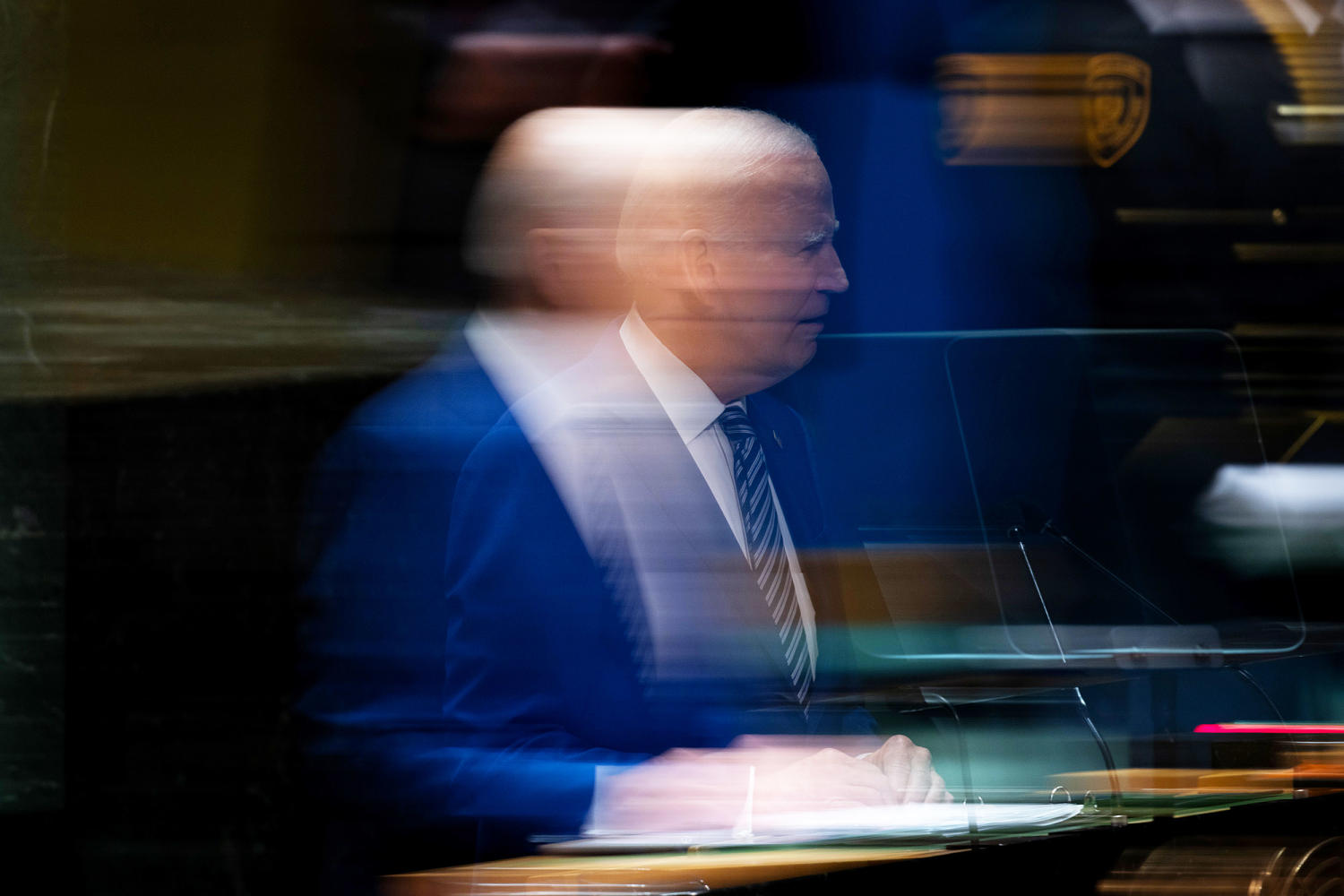Share this @internewscast.com

WASHINGTON — The fake Joe Biden robocall urging Democrats not to vote in Tuesday’s New Hampshire primary has sparked a renewed urgency on Capitol Hill about the threat of artificial intelligence-generated content designed to interfere in elections.
But some lawmakers on Tuesday expressed doubt that Congress will be able to pass legislation cracking down on deepfakes ahead of the November elections.
“Seriously, I don’t know how we do” it before the general election, Nebraska Sen. Deb Fischer, the top Republican on the Rules Committee that oversees elections matters, told NBC News. “First of all, we can’t even get appropriations bills up on the floor, how are we ever gonna get anything else up on the floor with the leader?”
Sen. Elizabeth Warren, D-Mass., herself a target of a deepfake video last year, blamed Republicans for the delay. “The Republicans are a hard no,” she said Tuesday. “Not every Republican, but it doesn’t take many to block it.”
Sen. Brian Schatz, D-Hawaii, who has worked with Sen. John Kennedy, R-La., on a bill requiring clear labels on AI content, called the prospect of more deepfakes in the upcoming election “absolutely alarming.”
“This is particularly concerning because it doesn’t have to trick everybody. It just has to trick a few, and it could be a difference-maker,” he said. “So I think voters need to be on their toes and understand that a lot of the stuff that’s going to be flying at them is intended to mislead them.”
But pressed on whether Congress would take action in time for the election, Schatz demurred and emphasized that educating Americans about the broad risks of deepfakes should be the priority right now.
“I would say I think what’s happening already is illegal. It’s not clear to me that whoever these actors are, are going to be worried about getting hauled before the Federal Elections Commission,” the senator said. “So my view is that … we also need to understand that AI-generated fraud is a problem that exists in campaigns, but it also exists in elder care and the education space and the rest of the private sector.”
The skepticism on the Hill comes as state lawmakers in both parties have begun turning their attention to AI and deepfakes, with at least 13 bills introduced across the country already this year.
Experts who spoke to NBC News said the fake Biden robocall telling Democrats not to vote in Tuesday’s New Hampshire primary was almost certainly an AI-generated deepfake. The state’s GOP attorney general has described the robocalls as an illegal attempt to suppress voters from writing in Biden’s name in the Democratic presidential primary. And it’s given lawmakers a real-life example of the types of deepfakes that could be deployed in the 2024 election that’s shaping up to be a rematch between Biden and Donald Trump.
Some lawmakers already saw this coming. In September, Senate Rules Chairwoman Amy Klobuchar, D-Minn., and Sens. Josh Hawley, R-Mo., Chris Coons, D-Del., and Susan Collins, R-Maine, rolled out legislation that would ban the use of deceptive AI-made content to influence elections.
Their bill would have an exemption for parody and satire under the 1st Amendment but would ban the use of audio, image or video deepfakes by political campaigns to raise money or to influence an election in any way. The New Hampshire robocalls would have been banned under the Protect Elections from Deceptive AI Act, Klobuchar said, adding that the robocalls have sparked fresh interest in the bipartisan effort.
“This has got to be a priority in our AI legislation, either doing it on its own or doing it as part of a package. It has to happen soon; we can’t wait,” Klobuchar told reporters Tuesday.
Collins, one of the five co-sponsors on the bill, said the New Hampshire robocalls are “exactly the kind of things we’ve been worried about. Using AI, it is remarkably easy to imitate voices or send out a video where someone who is running for office appears to be doing something or saying something that is utterly fake.”
“I hope that now that we’ve had the actual example in New Hampshire of precisely what we were predicting would happen,” Collins said, “it will give some momentum to the bill.”
Last year, with the emergence of ChatGPT and other AI technology, it appeared that momentum was building for Congress to tackle AI regulations. But that momentum waned in the New Year as lawmakers shifted their focus to funding the government and trying to strike a deal on immigration policies and Ukraine and Israel aid.
Another reason for the delay is that Senate Majority Leader Chuck Schumer, D-N.Y., who has focused his attention on AI this past Congress, is now trying to put together a sweeping legislative package on AI that covers much more ground than just deepfakes and election interference. The more issues that are included, however, the more complicated the package becomes.
Klobuchar said the deepfakes bill she’s leading is “part of that package.”
Schumer’s office did not have any immediate comment. The leader said in a floor speech this month that “one of the Senate’s top priorities will continue to be legislating on artificial intelligence” and that the Senate will build on the AI forums he’s been hosting to get members up-to-speed on the emerging technology and work “in tandem” with the committee process to develop legislation.
“I want to emphasize, underline, underscore that our work on AI remains wholly bipartisan. Both sides recognize the need to get something done on AI,” Schumer said.
Some senators who have been involved in developing AI legislation are advocating that more urgent pieces of the emerging package should be brought to a vote first.
“My preference at this point would be to, perhaps, separate some of the areas where the need is greatest for action, protecting against deepfakes and distortions in political campaigns and preserving the credit and compensation for journalists and local news operations,” said Sen. Richard Blumenthal, D-Conn., who authored an AI legislative framework with Hawley last year and plans to introduce his own deepfakes legislation.
Hawley mocked Schumer’s AI Insight Forums — including one featuring top tech titans like Elon Musk, Mark Zuckerberg and Sam Altman — as a “total joke.” But Hawley warned that the country needs to brace for more deepfakes, specifically videos, which will become more realistic as the technology gets better.
“My prediction is we’re gonna see a lot of this stuff. We’re going to see videos, too. The voice is bad, but, the videos are going to be really bad because … they’re really realistic,” Hawley said.
“They’re gonna get better and better and better, more and more quickly and when you add the voice with the video, I mean, it’s going to be impossible to tell and people are not going to know.”















